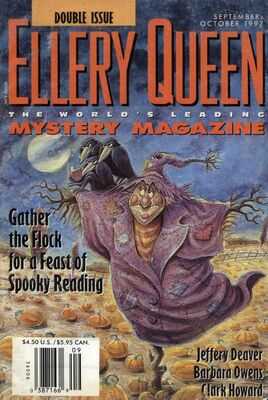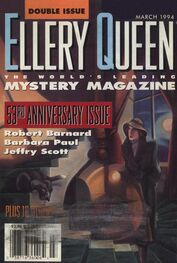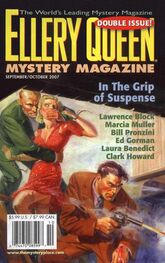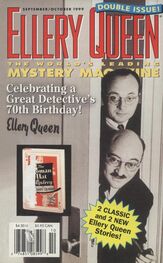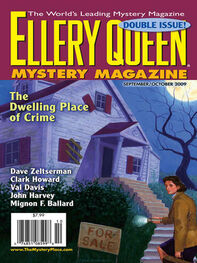I knew a bit about him from some background reading I’d done in the recent past. Not that I’d been interested in Joseph Hefferwhite... but I’d been very interested in Ronny Voore.
The two men had met at Stanford initially, then later on met again in Paris. They’d kept in touch thereafter, drifting apart only after “Heff” had decided on a political career. There had been arguments about the hippie culture, dropping out, Vietnam, radical chic — the usual ’60s U.S. issues. Then in 1974 Ronny Voore had lain down on a fresh white canvas, stuck a gun in his mouth, and gifted the world his final work. His reputation, which had vacillated in life, was given a boost by the manner of his suicide. I wondered if I could make the same dramatic exit. But no, I was not the dramatic type. I foresaw sleeping pills and a bottle of decent brandy.
After the party.
I was wearing my green Armani, hoping it would disguise the condemned look in my eyes. Joe Hefferwhite had known Voore, had seen his style and working practice at first hand. That was why the PM had wanted a Voore: to impress the American. Or perhaps to honour his presence in some way. A political move, as far from aesthetics as one could wander. The situation was not without irony: A man with no artistic sensibility, a man who couldn’t tell his Warhol from his Whistler... this man was to be my downfall.
I hadn’t dared tell Jance. Let him find out for himself afterwards, once I’d made my exit. I’d left a letter on my desk. It was sealed, marked Personal, and addressed to my superior. I didn’t owe Gregory Jance anything, but hadn’t mentioned him in the letter. I hadn’t even listed the copied works — let them set other experts on them. It would be interesting to see if any other fakes had found their way into the permanent collection.
Only of course I wouldn’t be around for that.
Number 10 sparkled. Every surface was gleaming, and the place seemed nicely undersized for the scale of the event. The PM moved amongst his guests, dispensing a word here and there, guided by the man he’d called Charles. Charles would whisper a brief to the PM as they approached a group, so the PM would know who was who and how to treat them. I was way down the list apparently, standing on my own (though a minion had attempted to engage me in conversation: It seemed a rule that no guest was to be allowed solitude) pretending to examine a work by someone eighteenth century and Flemish — not my sort of thing at all.
The PM shook my hand. “I’ve someone I’d like you to meet,” he said, looking back over his shoulder to where Joe Hefferwhite was standing, rocking back on his heels as he told some apparently hilarious story to two grinning civil servants who had doubtless been given their doting orders.
“Joseph Hefferwhite,” the PM said.
As if I didn’t know; as if I hadn’t been avoiding the man for the past twenty-eight minutes. I knew I couldn’t leave — would be reminded of that should I try — until the PM had said hello. This was all that had kept me from leaving. But now I was determined to escape. The PM, however, had other plans. He waved to Joe Hefferwhite like they were old friends, and Hefferwhite broke short his story — not noticing the relief on his listeners’ faces — and swaggered towards us. The PM was leading me by the shoulder — gently, though it seemed to me that his grip burned — over towards where the Voore hung. A table separated us from it, but it was an occasional table, and we weren’t too far from the canvas. Serving staff moved around with salvers of canapés and bottles of fizz, and I took a refill as Hefferwhite approached.
“Joe, this is our man from the Tate.”
“Pleased to meet you,” Hefferwhite said, pumping my free hand. He winked at the PM. “Don’t think I hadn’t noticed the painting. It’s a nice touch.”
“We have to make our guests feel welcome. The Tate has another Voore, you know.”
“Is that so?”
Charles was whispering in the PM’s ear. “Sorry, have to go,” the PM said. “I’ll leave you two to it then.” And with a smile he was gone, drifting towards his next encounter.
Joe Hefferwhite smiled at me. He was in his seventies, but extraordinarily well preserved, with thick dark hair that could have been a weave or a transplant. I wondered if anyone had ever mentioned to him his resemblance to Blake Carrington...
He leaned towards me. “This place bugged?”
I blinked, decided I’d heard him correctly, and said I wouldn’t know.
“Well, hell, doesn’t matter to me if it is. Listen,” he nodded towards the painting, “that is some kind of sick joke, don’t you think?”
I swallowed. “I’m not sure I follow.”
Hefferwhite took my arm and led me around the table, so we were directly in front of the painting. “Ronny was my friend. He blew his brains out. Your prime minister thinks I want to be reminded of that? I think this is supposed to tell me something.”
“What?”
“I’m not sure. It’ll take some thinking. You British are devious bastards.”
“I feel I should object to that.”
Hefferwhite ignored me. “Ronny painted the first version of Herbert in Paris in forty-nine or fifty.” He frowned. “Must’ve been fifty. Know who Herbert was?” He was studying the painting now. At first, his eyes flicked over it. Then he stared a little harder, picking out that section and this, concentrating.
“Who?” The champagne flute shook in my hand. Death, I thought, would come as some relief. And not a moment too soon.
“Some guy we shared rooms with, never knew his second name. He said second names were shackles. Not like Malcolm X and all that; Herbert was white, nicely brought up. Wanted to study Sartre, wanted to write plays and films and I don’t know what. Jesus, I’ve often wondered what happened to him. I know Ronny did, too.” He sniffed, lifted a canapé from a passing tray, and shoved it into his mouth. “Anyway,” he said through the crumbs, “Herbert — he didn’t like us calling him Herb — he used to go out running. Healthy body, healthy mind, that was his creed. He’d go out before dawn, usually just as we were going to bed. Always wanted us to go with him, said we’d see the world differently after a run.” He smiled at the memory, looked at the painting again. “That’s him running along the Seine, only the river’s filled with philosophers and their books, all drowning.”
He kept looking at the painting, and I could feel the memories welling in him. I let him look. I wanted him to look. It was more his painting than anyone’s. I could see that now. I knew I should say something... like “that’s very interesting,” or “that explains so much.” But I didn’t. I stared at the painting, too, and it was as though we were alone in that crowded, noisy room. We might have been on a desert island, or in a time machine. I saw Herbert running, saw his hunger. I saw his passion for questions and the seeking out of answers. I saw why philosophers always failed, and why they went on trying despite the fact. I saw the whole bloody story. And the colours: They were elemental, but they were of the city, too. They were Paris, not long after the war, the recuperating city. Blood and sweat and the simple feral need to go on living.
To go on living.
My eyes were filling with water. I was about to say something crass, something like “thank you,” but Hefferwhite beat me to it, leaned towards me so his voice could drop to a whisper.
“It’s a hell of a fake.”
And with that, and a pat on my shoulder, he drifted back into the party.
“I could have died,” I told Jance. It was straight afterwards. I was still wearing the Armani, pacing the floor of my flat. It’s not much — third floor, two bedrooms, Maida Vale — but I was happy to see it. I could hardly get the tears out of my eyes. The telephone was in my hand... I just had to tell somebody, and who could I tell but Jance?
Читать дальше